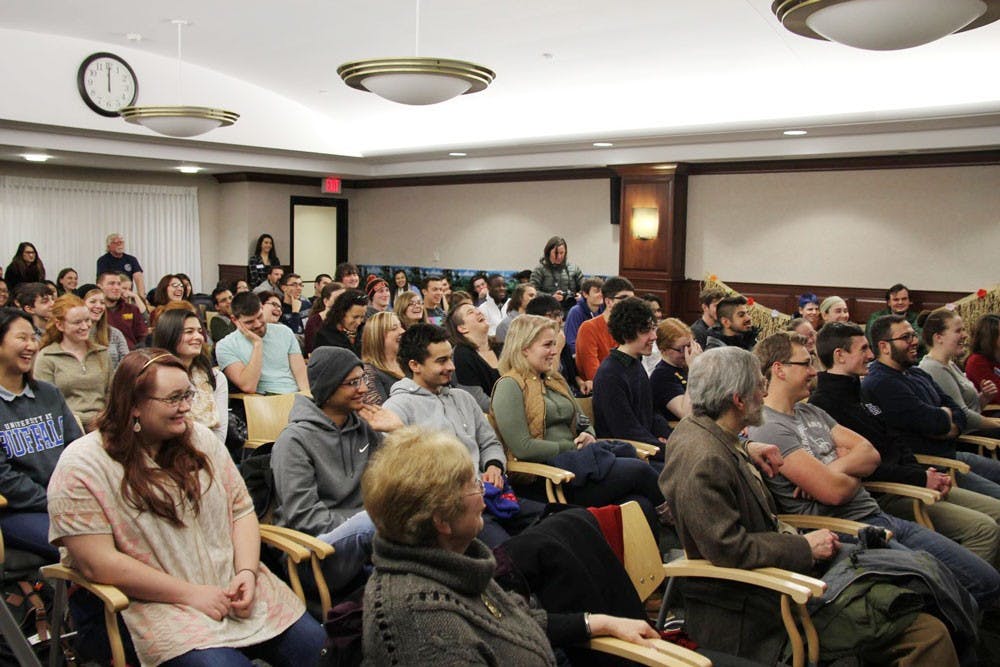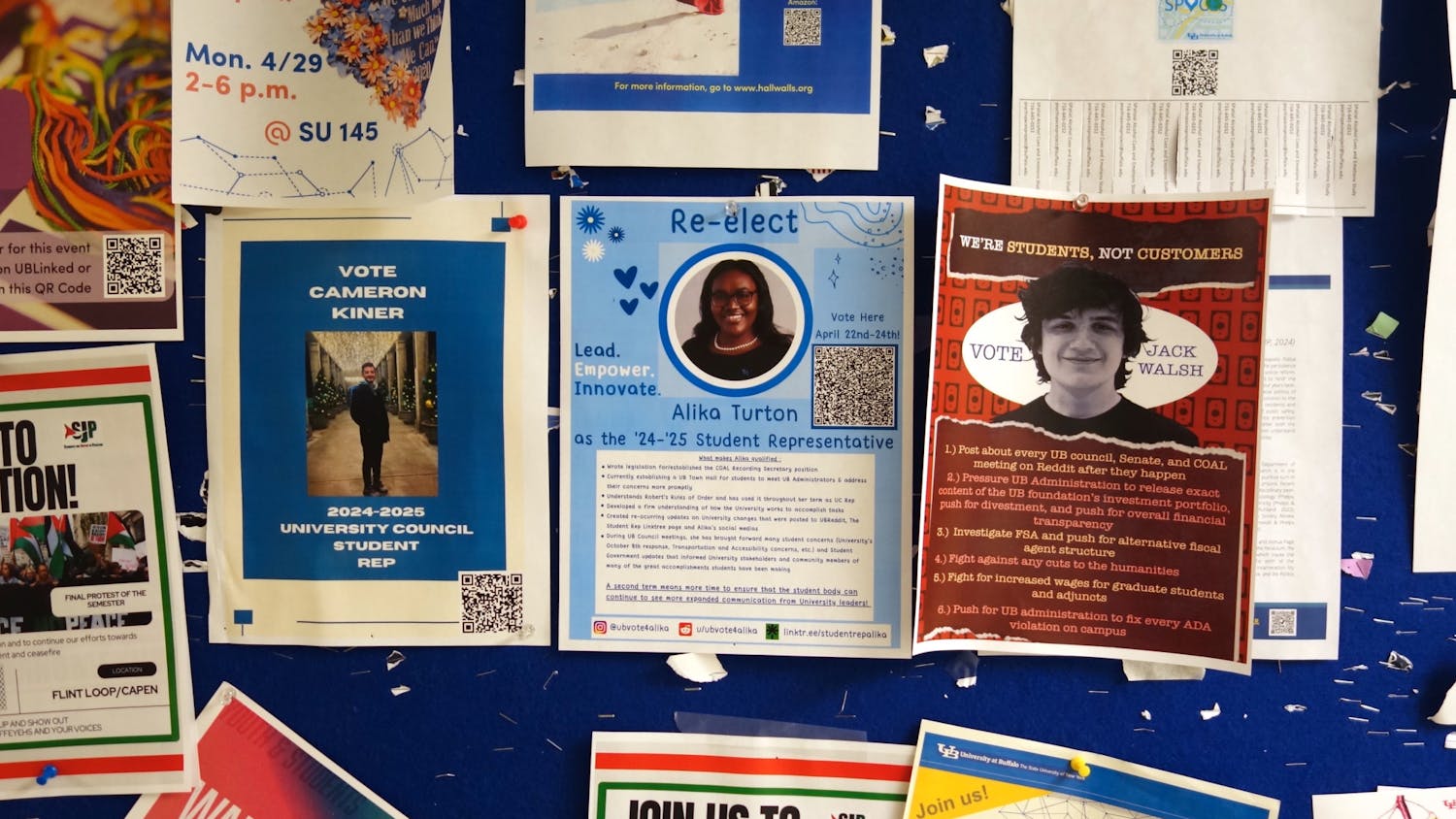The humanities beat out the sciences at UB – at least for one night.
Associate history professor Patrick McDevitt secured the first-ever win for the humanities department at the fifth annual Life Raft Debate on Wednesday night. Co-sponsored by UB’s Honor College and the Academies, the Life Raft Debate brings professors from various departments together to argue why they think they should survive a hypothetical deserted island by escaping via life raft. The professors argued the importance of his or her field in rebuilding a post-apocalyptic civilization for eight minutes.
Engineering professors fared well in past debates, but on Wednesday night the humanities and the geologist departments had students and professors talking.
“We are not going to have a lot of time to learn by trial and error, so having a historian around with a longer perspective will certainly be important,” McDevitt said.
The audience is the ultimate decision maker on which professor deserves the top spot. Viewers vote using their cell phones after hearing each argument and rebuttal.
Last year’s debate champion, UB provost and professor of chemical and biological engineering, Charles Zukoski, acted as this year’s devil’s advocate. His role was to convince the audience that none of the professors were vital candidates.
Roughly 60 students attended the debate, a similar attendance to prior years.
Devashish Agarwal, a sophomore computer science major, said he has attended the debate for the last two years.
“It’s a really fun and interesting event,” Agarwal said. “I went last year and loved it so I knew I had to go again this year.”
Agarwal said he thought it was a tough decision as to who won the debate, but he was happy with the ultimate champion.
“I was confused if I wanted the geologist or history [professor] but I’m definitely happy the history professor won. He was funny, he was witty and he was logical,” he said.
McDevitt said the job of a historian is to “condense vast swathes of human experience into useable information, to understand past events in context so we don’t draw the wrong lessons, to grasp why people made the choices they did and, of course, to know how things turned out.”
According to McDevitt, it was “history’s expansive purview” which gave him an advantage in this debate.
Jason Briner, an associate geology professor, approached his argument from a self-proclaimed “macro-perspective.”
“Before the writer can write anything down, he’s gonna need me to get him his graphite,” Briner said during his argument. “And as far as engineers go, it’s kind of like the whole chicken and the egg scenario. Have fun engineering without any raw material.”
Howard Wolf, a retired emeritus English professor, joined McDevitt in representing the humanities department. Wolf argued the necessity of literature.
Jessica Seabury, a senior assistant director of the Honors College, works in conjunction with Christina Giunta, program coordinator for the Academies, to organize the event each year.
“I think it’s a really unique event in the sense that it’s academic but kind of with a fun twist … you get a chance to learn about different disciplines and you get to know the faculty in a different setting,” Seabury said. “There’s a lot of reciprocity between the audience and the professors so it’s cool.”
Sarah Crowley is a news staff writer. News desk can be reached at news@ubspectrum.com.





